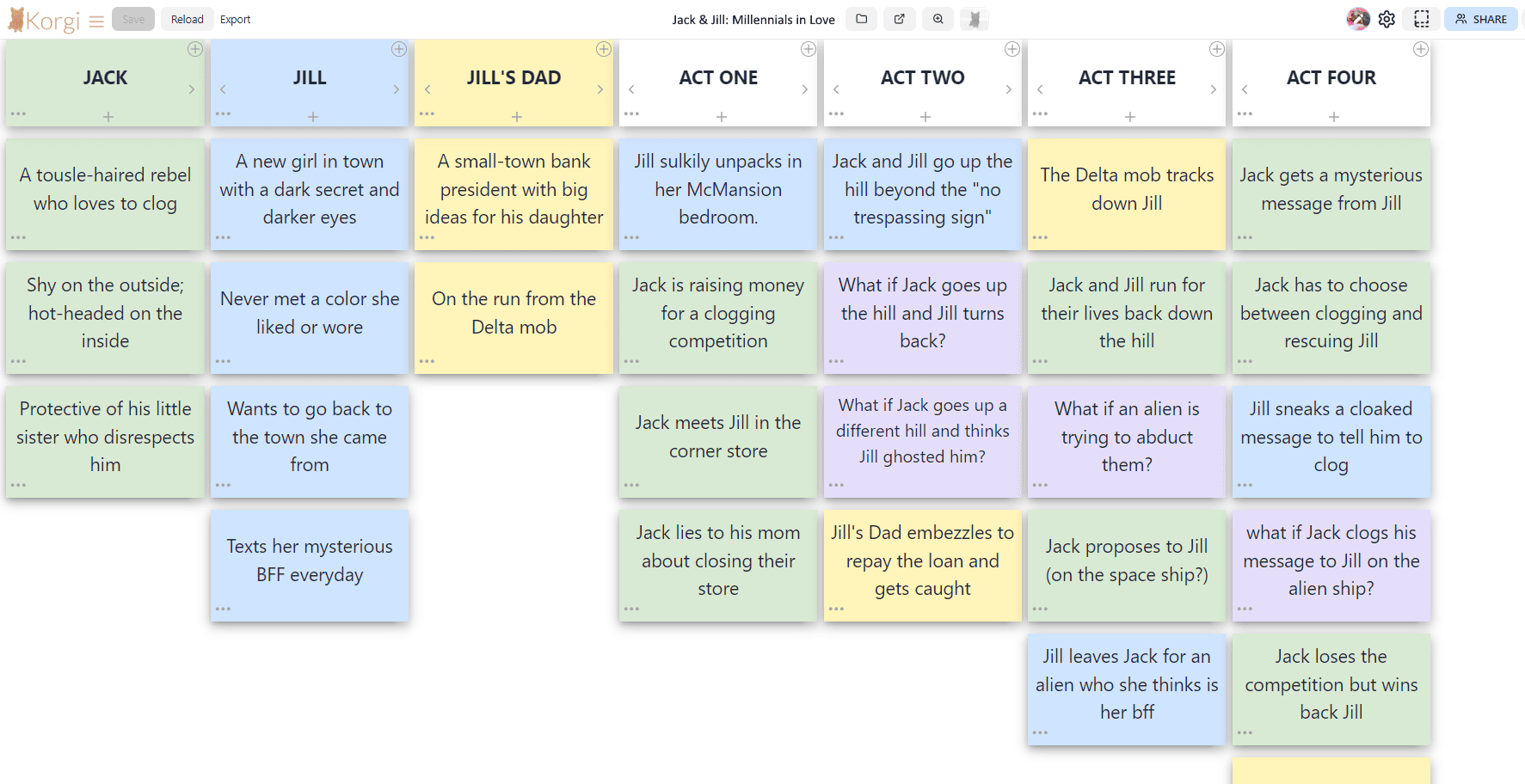You've probably seen this phrase your entire career, no matter how long or short it has been: "No unsolicited submissions." Here are some FAQs to help you decide if and when to press "send" or otherwise share your creative content with other people.
Why you're in development hell - and how to get out of it (or never go in)

Writers, there is a special place called "development hell," that is more accurately called "writer's purgatory." I want to tell you why it happens so you can see when it's looming ahead and avert the crisis in favor of a creative win.
Development hell happens because someone in the creative pipeline - a prod co, studio or network exec - saw something they liked in the premise or the plot of your pitch, and they said, "let's do this." (Not "I love it!" That almost never means what you think it means or what the actual study of English language literally means it means.)
That kernel of an idea was filled with promise, and docs were signed, and deals were flowed, and cash was likely not exchanged. And there you were "in development." (Aside: someone definitely told you or your reps this project wasn't ready yet, and you or your reps definitely just told them that it has gone into development, so there!)
Now come the notes. After the slow-motion pace of finalizing the agreement comes the surprise acceleration towards, "Okay, where are we?" That begins the push towards product. And in this industry, product is a treatment or a script. So everyone is going to urge you towards writing, and hear this deeply, "plot" because that's what you brought to the table that excited them. There then will be many meetings about "What if this happens?" or "Why does this happen?" and you will ponder and pitch ideas and go back to your initial pages and write more complicated and sometimes convoluted permutations of plot.
Everyone is going to urge you towards writing, and hear this deeply, "plot" because that's what you brought to the table that excited them.
And you will never emerge. After many months of this, you will be pushed to "go to script" to see if you can somehow "crack the story," and the notes will continue and the contradictions will surge, and your rep will Zoom-rub your shoulders, and you will be irritable and weary, and your prod co will be more irritable and weary, and your studio and network execs will remain oddly cheerful because the coffee is powerful and ever-flowing in those legendary buildings.
At the end of a year or so, the development term will expire, and the project will go quietly into that good night of turnaround or "we own it even if we don't want it but you definitely do not get to do anything else with it." And lutes will be strummed, and lore will say, "the writer couldn't crack it." (Really, it's the execs who will say this. And sometimes your rep, just never to you.)
Lutes will be strummed, and lore will say, "the writer couldn't crack it."
How do we record scratch this moment? We're not wondering how you got here; we know how you got here. Now, you will know, too.
You are in development hell because you led with premise or plot instead of characters. You pitched a series of scintillating sequential events instead of a compelling, complex character. You wrote, as I say, from the outside in. You wrote exciting things about "what happened to my character next" instead of grounded, revealing illustrations of "what my character inevitably did next." And you can't effectively develop plot points.
You can't. Develop. Plot points.
Plot is only meaningful as a manifestation of your character's values, desires, risks and changes. It is an expression of character, not a replacement for it. Without character, everyone is just debating ideas for events, in meeting after meeting - and without the anchor of a character, their core trait, their organic tension, every possible event is going to be considered a *viable* possible event. And you will chase those possibilities until the sand runs through to the bottom of the glass.
Plot is only meaningful as a manifestation of your character's values, desires, risks and changes. It is an expression of character, not a replacement for it.
You will not go into development hell if, before you ever pitch a thing, you do the deep, glorious, revealing work of finding, defining and forming a real character. That is the craft that will guide your project. And that is the reason anyone will ultimately watch your project. The world didn’t devour “Wednesday” for its depth of plot; they watched it for the astonishingly specific character (and the amazing performances). “Squid Game” would be a one note gore-fest without the beauty of flaws and arc of its perfect protagonist. You will follow him on that plane into S2, no matter where it takes him or you, because that character has you in a hold. And it’s not a scripted rule of craft either; social media is filled with reality show fans talking about cast member’s names and who they root for and against. Watch any award-winning doc and see how they root the story not in the literal events but in the characters who experienced them, what decisions they made, and how they changed for better or worse as a result.
Please, pitch characters, not plot. Develop character journeys, not plot points. And if a development opportunity comes your way, the very first meetings you and your rep must insist on having is a deep dive into and sign off on the protagonist and supporting characters. Not their physical descriptions, jobs and catch phrases. Their essential selves, true norths, conflict with the world.
What if you’re currently in development hell? You still can get out and back on track to a producible project. Temporarily stop trying to organically land aliens at the end of Act Two and schedule a character dive before you do any more plot pivots. Come to that meeting with your characters built out, arced and dynamic. Have that conversation as soon as you possibly can.
Temporarily stop trying to organically land aliens at the end of Act Two and schedule a character dive before you do any more plot pivots.
And that person who told you it wasn’t ready yet? Grab a coffee with them and see if they might remember or share their thoughts from way back when, because it may be helpful craft for your next foray into development.
